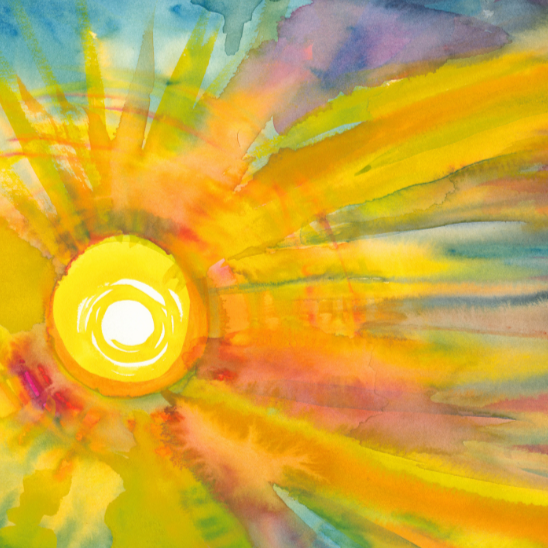The spiritual practice of prayer awakens us to the beautiful truth of our identity.
It happens through authentic, unfiltered communion, a fundamental privilege available to us because Jesus had the selfless foresight to pray over all believers in His final hours, that we would be brought into complete unity.
Imagine that! Our God, the Most High and Loving Father, stoops low to become known to His children, to connect, and to communicate.
If only we allow ourselves to be known, to be seen, to expose the parts that feel unworthy, broken, or afraid and let them be restored in the Savior’s gracious Light.
I wonder if this is the supernatural gift of prayer. We reveal the anxieties of our humanity and subject them to the glory of Heaven.
Jesus, the human, moving toward His actualization as the Christ, often went to lonely, solitary places to pray. These conversations with the Father — the asking, seeking, and listening — were the lifeblood of Jesus’ ministry. His next steps were enlightened through the Spirit; today we would call them strategic objectives.
What did Jesus take to the Father in prayer? How did Jesus discern the responses? Maybe it was a voice, or somehow seeing from the heart the already and not yet.
The point, I believe, is not exactly to know how, but to trust that God gives Himself to us in the depths of our own being.
We come to an obscure intuition of our own personal secret.
Thomas Merton
And to the mercy of revelation, how do we respond?
Jesus’ private prayers led Him to bold acts of faith.
Matthew’s gospel tells us that King Herod ordered the murder of John the Baptist, and when Jesus learned that John had been beheaded, Jesus withdrew, alone, by boat to an isolated place.
We can imagine that Jesus was crushed by grief, sorrow, and the pain of losing His spiritual brother and prophetic waymaker of Jesus’ ministry. His heart and spirit were broken, yet there also had to be an intellectual confrontation with what happened and what was unfolding. John’s death, at the hands of envious cruelty, signaled a certainty of Jesus becoming Christ on the Cross.
Jesus knew His hour was coming. And how else can we absorb tragic totality but in the presence of dear ones or in the arms of a secure parent? Jesus sought this communion in the humble retreat of prayer.
Matthew also explains that Jesus’ quiet time did not necessarily last that long; the crowds came by foot to find Him. So, consider what happened immediately after Jesus’ brief serenity pause.
He saw the large crowd, was moved with compassion, and healed them.
He transformed five loaves of bread and two fish into a feast for 5,000 with leftovers.
He walked on water, stilled the sea’s stormy winds, and stirred His disciples into a state of fearful awe and worship. “Truly You are the Son of God!” they exclaimed.
What does this tell us? The uninhibited empathetic action – the essence of His ministry – and two of Jesus’ most notorious marvels and miracles were directly preceded by solitary prayer. It may not be that Jesus was told through prayer to take those specific acts, but was filled with the freedom to act.
Prayerful discernment leads to a sense of peacefulness and assurance, an intimate communication with our Father who moves toward us as if to say, “This is what I made you for, this is who I made you to be.”
The next step is ours.




